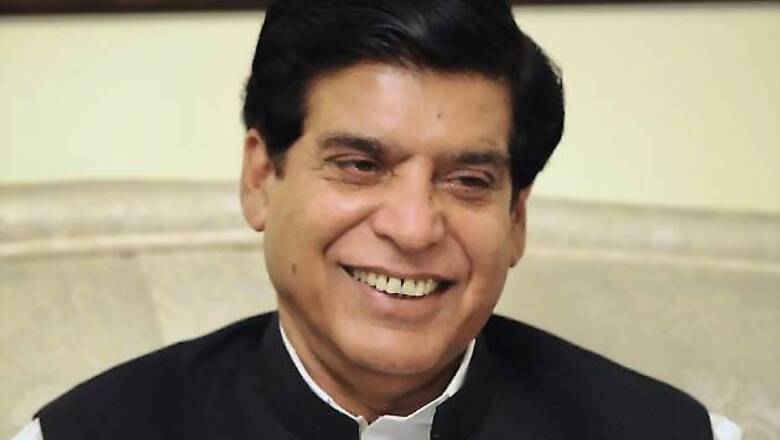
views
Islamabad: Breaking a jinx, Pakistani politics has achieved a major milestone with the National Assembly completing its full term for the first time, even as the country's leadership continue to be divided on the issue of choosing a caretaker premier to oversee polls. The National Assembly or lower house of parliament completed its constitutional five-year term on Saturday and the cabinet of Prime Minister Raja Pervez Ashraf stood dissolved at midnight, marking the first time an elected set-up has not been removed by the military or other political forces.
In his farewell address to the nation over Radio Pakistan and Pakistan Television network on Saturday night, Ashraf thanked all democratic forces and institutions that played their role in strengthening democracy. Ashraf, who became prime minister in June, 2012 after Yousuf Raza Gilani was disqualified over contempt of court charges, pointed out that going by the fact that the current government remained a victim of negative propaganda and concocted allegations, completion of term by his government is an extraordinary and historic event.
Ashraf said the completion of the full term by his government marked the end of a "sinister chapter" of ambushes on democracy. "We have strengthened the foundations of democracy to such an extent that no one will be able to harm it in future," he said during the televised speech on Saturday night. None of Pakistan's previous 12 National Assemblies survived a full term.
The Pakistani media hailed the development as a turnaround in the tumultuous politics of a country that has witnessed several military coups and interventions by the President. The headline in The Express Tribune read "One giant leap for democracy" while the Daily Times described the achievement as "Democracy wins a round". "In the end, it was the 13th National Assembly that broke the jinx of interrupted governments," The Express Tribune said in its front-page report.
"It is a watershed moment in Pakistan's history. In the past, we have elected in governments but we were never given a chance to vote them out. So, the distant dream of democracy seems within reach for the first time," Farrukh Pitafi, a columnist and TV talk show host, said. Prime Minister Ashraf will continue in office till the caretaker premier is appointed.
The ruling Pakistan Peoples Party and the main opposition PML-N, which have time till March 19 to finalise a consensus candidate, have been engaged in tough negotiations to choose the person who will guide the country through elections to the national and provincial assemblies. However, the two parties have already rejected each other's proposed candidates, accusing them of bias. The PPP proposed former Finance Minister Abdul Hafeez Shaikh, banker Ishrat Hussain and retired judge Mir Hazar Khan Khoso.
The PML-N's candidates are retired judge Nasir Aslam Zahid and politician Rasool Baksh Palejo. Ishrat Hussain, a former head of the State Bank of Pakistan, and Nasir Aslam Zahid, who has worked tirelessly people's rights and stepped down from the Supreme Court after the military coup by Pervez Musharraf, have emerged as the front-runners for the post of caretaker premier. Sources said Hussain would have greater acceptability with the security establishment as it is believed he will not take any stern action if Musharraf sticks to his plans to return to Pakistan from self-exile later this month.
Hussain headed the country's central bank during Musharraf's regime. On the other hand, analysts believe Zahid would be better placed to ensure free and fair polls as he is unlikely to bow to pressure from any quarter. If the Prime Minister and Leader of Opposition fail to choose a caretaker premier by March 19, the task will be entrusted to an eight-member parliamentary committee. If the committee, comprising an equal number of lawmakers nominated by the government and the opposition, is unable to choose a candidate in three days, a decision will be made by the Election Commission in two days.
The differences on the issue of choosing a caretaker premier underscored the divisions in the political arena and analysts said all parties would have to work together now to strengthen the democratic system. "In the first civilian-to-civilian transition, the formation of a caretaker government seems a challenge but it is not as big a challenge as the one that will be faced by the interim administration in maintaining law and order during the polls," said Pitafi. "But if that can be handled, Pakistan is on the fast track to democratisation," he said.




















Comments
0 comment